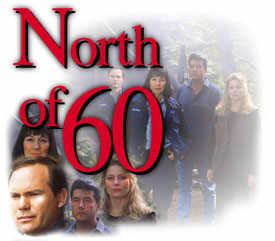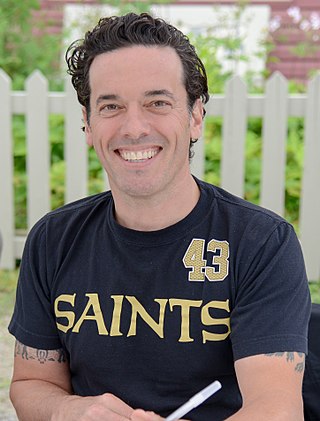Synopsis
During his visits Derek stays in a structure similar to the one he is working on, spending time with a family and seeing how the shelter functions and shapes the lives of its occupants. He joins them at meals, in games and learns about their culture at the same time that he experiences what it’s like to build a home in a completely different way.
As he learns the construction techniques used to build the home, one of the big things he has to get used to - aside from communicating in a foreign language - is the lack of power tools. Whether he’s mixing mud and straw by hand or hoisting stones with ropes and pulleys, we get to see how he adapts to doing things the way the locals do it. In some cases it’s how they’ve been doing it for thousands of years.
Through his exposure to other Indigenous and traditional cultures he gains insight into how his own people can re-connect to their traditional home building techniques and ultimately their traditional way of life.
Sheltered is an Aboriginal carpenter’s search for the missing links to his past.

North of 60 is a 1990s Canadian television drama depicting life in the sub-Arctic northern boreal forest. It first aired on CBC Television in 1992 and was syndicated around the world. It is set in the fictional community of Lynx River, a Canadian Indigenous community depicted as being in the Dehcho Region, Northwest Territories.

Tanya Tagaq, also credited as Tagaq, is a Canadian Inuk throat singer, songwriter, novelist, and visual artist from Cambridge Bay (Iqaluktuuttiaq), Nunavut, Canada, on the south coast of Victoria Island.

Melanesian Meriam people are an Indigenous Australian group of Torres Strait Islander people who are united by a common language, strong ties of kinship and live as skilled hunter–fisher–gatherers in family groups or clans on a number of inner eastern Torres Strait Islands including Mer or Murray Island, Ugar or Stephen Island and Erub or Darnley Island. The Meriam people are perhaps best known for their involvement in the High Court of Australia's Mabo decision which fundamentally changed land law in Australia - recognising native title.
Saugeen First Nation is an Ojibway First Nation band located along the Saugeen River and Bruce Peninsula in Ontario, Canada. The band states that their legal name is the "Chippewas of Saugeen". Organized in the mid-1970s, Saugeen First Nation is the primary "political successor apparent" to the Chippewas of Saugeen Ojibway Territory; the other First Nation that is a part of Chippewas of Saugeen Ojibway Territory is Cape Croker. The Ojibway are of the Algonquian languages family. The First Nation consist of four reserves: Chief's Point 28, Saugeen 29, Saugeen Hunting Grounds 60A, and Saugeen and Cape Croker Fishing Islands 1.

Joseph Boyden is a Canadian novelist and short story writer of Irish and Scottish descent. He also claims Indigenous descent, but this is widely disputed. Joseph Boyden is best known for writing about First Nations culture. Three Day Road, a novel about two Cree soldiers serving in the Canadian military during World War I, was inspired by Ojibwa Francis Pegahmagabow, the legendary First World War sniper. Joseph Boyden's second novel, Through Black Spruce, follows the story of Will, son of one of the characters in Three Day Road. The third novel in the Bird family trilogy was published in 2013 as The Orenda.
Indigenous police services in Canada are police forces under the control of a First Nation or Inuit government. The power of Indigenous governments to establish independent police services varies, and only First Nations and Inuit communities governed by the Indian Act can establish their own police forces. Métis governments, First Nations, and Inuit governments that have completed the comprehensive land claims process can only contract police services to a third party police force. The powers of Indigenous police services also vary, and some cannot complete criminal investigations without outside consultation or maintain specialized resources, such as police dogs or crime labs.
Tipi Tales is a Canadian children's television series about a First Nations family living in a woodlands cottage, and focused on teaching children about the importance of family and friends, as well as First Nations culture.
Basil H. Johnston was a Anishinaabe (Ojibwa) and Canadian writer, storyteller, language teacher and scholar.
Peggy J. Blair is a Canadian lawyer and author. Blair has been a member of the Law Society of Upper Canada since 1990 and is a past member of the Law Society of Alberta (1982–1999). Blair is considered an expert in Indigenous legal issues. After leaving active law practice, Blair has become a mystery writer.

Peguis First Nation is the largest First Nations community in Manitoba, Canada, with a population of approximately 10,300 people. The members of Peguis are of Saulteaux (Ojibway) and Cree descent.

Calvin Murray Sinclair, is a former member of the Canadian Senate and First Nations lawyer who served as chairman of the Indian Residential Schools Truth and Reconciliation Commission from 2009 to 2015. He previously served as a judge in Manitoba from 1988 to 2009, being the first Indigenous judge appointed in the province. Sinclair was appointed to the Senate of Canada on April 2, 2016. In November 2020, he announced his retirement from the Senate effective January 31, 2021.

The Aboriginal Peoples Television Network is a Canadian specialty channel. Established in 1992 and maintained by governmental funding to broadcast in Canada's northern territories, APTN acquired a national broadcast licence in 1999. It airs and produces programs made by, for and about Indigenous peoples in Canada and the United States. Based in Winnipeg, Manitoba, it is the first network by and for North American indigenous peoples.

Richard Wagamese was an author and journalist from the Wabaseemoong Independent Nations in Northwestern Ontario. He was best known for his novel Indian Horse (2012), which won the Burt Award for First Nations, Métis and Inuit Literature in 2013, and was a competing title in the 2013 edition of Canada Reads.
Jay Odjick is a writer, artist and television producer from the Kitigan Zibi Anishinabeg community in Québec, Canada. He is best known for his creation Kagagi, part of a growing number of Indigenous superheroes created by Indigenous writers and artists. In 2015, Kagagi has now moved from the page to the screen in a 13-episode, half-hour animated series broadcast on APTN.
First Contact is an Australian reality television documentary series that aired on SBS One, SBS Two and NITV. It documents the journey of six European Australians who are challenged over a period of 28 days about their pre-existing perceptions of Indigenous Australians.
Karyn Pugliese (Pabàmàdiz) is a Canadian broadcast journalist and communications specialist, of Algonquin and Italian descent. She is member of the Algonquins of Pikwàkanagàn First Nation in Ontario. She is a Nieman Fellow, Class of 2020, Harvard University and has been recognized by the Canadian Association of Journalists with a Charles Bury Award for her leadership supporting journalists and fighting for media rights. In 2018 the Academy of Canadian Cinema and Television presented Pugliese with the organization's annual Gordon Sinclair Award for distinguished achievement in journalism at the 6th Canadian Screen Awards. In 2019 Pugliese received the Hyman Solomon Award for Public Policy Journalism and was the co-recipient with journalist Justin Brake for the Native American Journalists Association (NAJA) 2019 Elias Boudinot Free Press Award. She was chosen for the twenty-fifth Martin Wise Goodman Canadian Nieman Fellowship at Harvard University. She won a National Newspaper Award for a series of columns written for the National Observer in 2021, where she is now editor-in-chief. She is a frequent commentator on CBC's Rosie Barton Live and the podcast Canadaland. Pugliese recently replaced the former host of the canadaLANDBACK series. The former host Ryan McMahon, left after some personal controversy and conflict with his producer.
Roxann (Karonhiarokwas) Whitebean is an independent film director and media artist from the Mohawk Territory of Kahnawake (Canada).
By the Rapids is Mohawk-language animated television show that originally aired on the Aboriginal Peoples Television Network (APTN) from 2008 to 2012. It was the first Indigenous animated television series in Canada.

The Pelican Lake Indian Residential School—also known as Pelican Falls Indian Residential School and Sioux Lookout Indian Residential School—was a Canadian Indian Residential School in Sioux Lookout, Ontario, that operated from 1929 through 1969. While it was in operation, the school took Ojibway and Cree students from both Treaty Three and Treaty Nine territories in northern Ontario and eastern Manitoba. Former students of the school have reported experiencing physical, psychological, and sexual abuse while attending the school.
Chuck and the First Peoples Kitchen is a documentary food and culture television series whose premiere first broadcast was on the Aboriginal Peoples Television Network (APTN) in 2020; in English on September 10; in French on September 14. Canadian celebrity chef Chuck Hughes hosts the show, visiting Canadian indigenous communities where he learns supply techniques and traditional recipes with the community members. The show is filmed in French and English. The show airs on APTN in French and in English.








